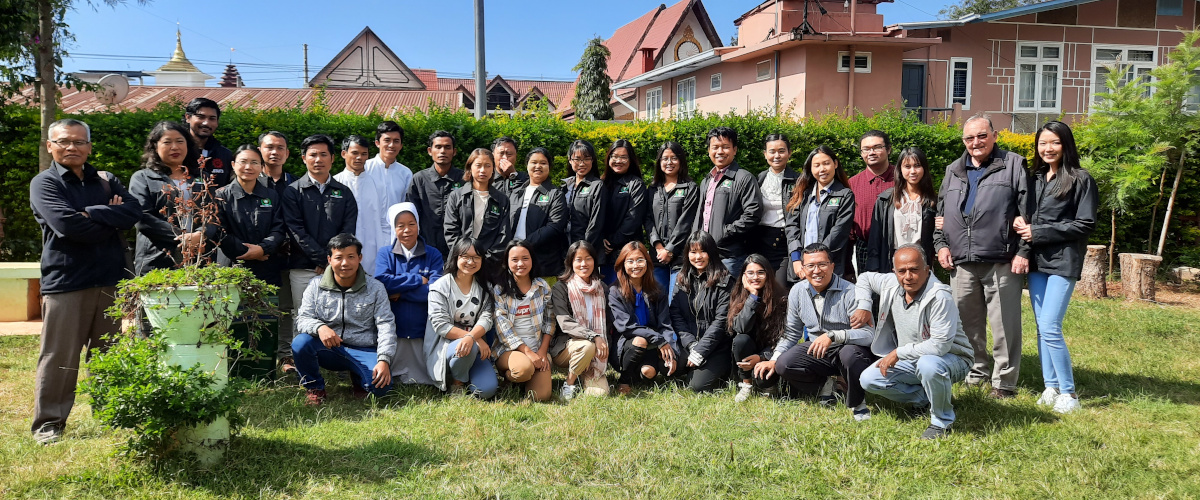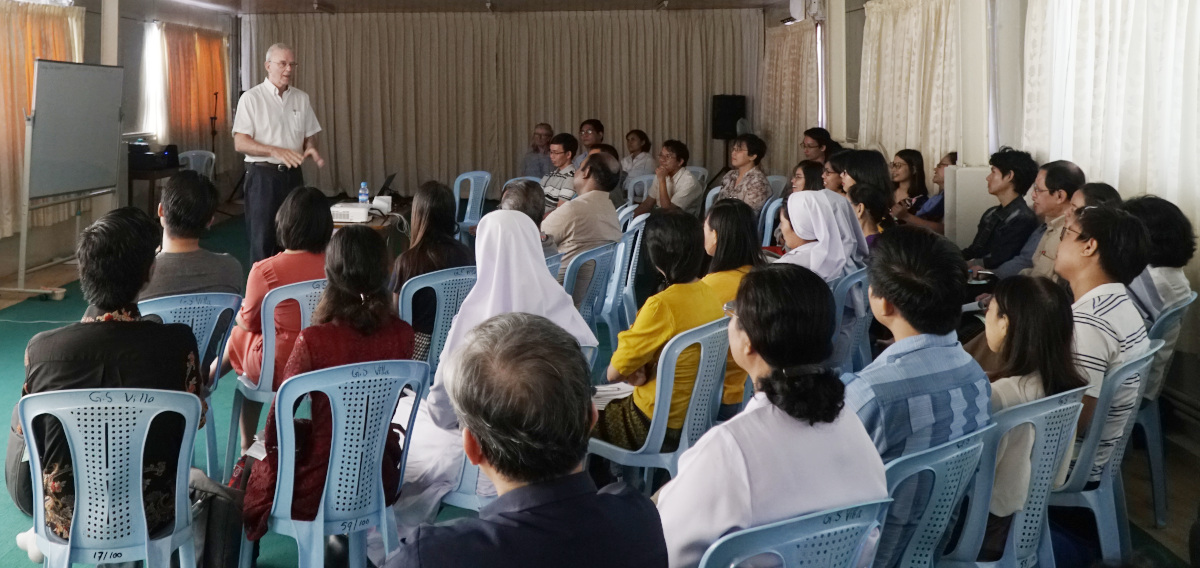
The Mission’s original policy, For the Greater Good, in place since 2013, has been completely revised with the help of the templates for child safeguarding developed by the Xavier Network for Mission and Development. Given its extensive engagement with college level students, and growing commitment to the Spiritual Exercises, Myanmar Mission has added provisions for the protection of vulnerable adults. This is because, for example, students can be seen as lacking power and thus vulnerable in their relationship with teachers. In addition, the Mission already subscribes to the protocol developed by the Catholic Religious of Myanmar (CRCM) on the Protection of Children and Vulnerable Adults.
Fr Irsan Rimawal SJ, Safeguarding Officer for the Myanmar Mission and a member of the CRCM Safeguarding Working Group, led the workshops in Yangon and Taunggyi together with members of the core safeguarding team.
The workshop held on November 22 in Yangon gathered about 50 members of the various activities of the Myanmar Jesuit Mission in that city. Teachers and field workers came from Campion Institute, Myanmar Leadership Institute, two Loyola Community Colleges, Housing and Micro-credit Projects, Magis and the Youth Ministry of Yangon, from the Mission office and from the Yangon Jesuit community. Myanmar Mission Superior Fr Mark Raper SJ gave an opening talk. Since it was also the first time in recent years that all the Mission’s co-workers had gathered in one place, he outlined the context of the Jesuit mission in Myanmar, and introduced its current planning, the Mission’s apostolic priorities today and pending developments. He stressed the need and importance of protection of the innocent and vulnerable.
The Safeguarding Workshop in Taunggyi a week later on November 29 brought together 33 participants from Southern Shan State, including St Aloysius Gonzaga-Institute of Higher Studies, the Magis and Youth Ministry of Taunggyi, the Faber Jesuit community and the Candidates programme, as well as personnel from the Maria della Strada International Novitiate and Ignatian Retreat Centre in Payaphyu. Workshops will soon be rolled out for the Jesuit activities in Kachin State, both in Myitkyina and Banmaw dioceses.
Fr Irsan explained that the Mission responds to the invitation of Pope Francis for personal, communal and institutional conversion. In his Apostolic Letter to the People of God on August 20, 2018, Pope Francis had said: “If one member suffers, all suffer together with it” (1 Cor 12:26). Acknowledging the reality of “the suffering endured by many minors due to sexual abuse, the abuse of power and the abuse of conscience perpetrated by a significant number of clerics and consecrated persons”, the Pope went on to say: “Looking ahead to the future, no effort must be spared to create a culture able to prevent such situations from happening, but also to prevent the possibility of their being covered up and perpetuated. The pain of the victims and their families is also our pain, and so it is urgent that we once more reaffirm our commitment to ensure the protection of minors and of vulnerable adults.”
The Myanmar Mission seeks to promote such a culture, to ensure that its members, institutions and programmes do no harm to any person, especially children, and even more, will promote a culture of protection and respect. Each institution now has a Designated Safeguarding Officer responsible for these matters, and a manual for implementation of the policy. A summary statement is given to each staff member and each is required to give assent to the policy. The recent launch and training on the Mission’s new policies clearly improved understanding of the need for the protection of minors and adults in vulnerable situations, and increased the Mission’s alertness and capacity to protect them and to prevent abuse.







